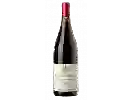
Winery Nicolas IdiartLe Douleur Exquise Blanc
This wine generally goes well with vegetarian, poultry or rich fish (salmon, tuna etc).
Wine flavors and olphactive analysis
On the nose the Le Douleur Exquise Blanc of Winery Nicolas Idiart in the region of Loire Valley often reveals types of flavors of oaky, citrus or butter and sometimes also flavors of strawberries, pepper or apricot.
Food and wine pairings with Le Douleur Exquise Blanc
Pairings that work perfectly with Le Douleur Exquise Blanc
Original food and wine pairings with Le Douleur Exquise Blanc
The Le Douleur Exquise Blanc of Winery Nicolas Idiart matches generally quite well with dishes of rich fish (salmon, tuna etc), shellfish or sweet desserts such as recipes of penne with smoked salmon and crème fraiche, scallops in coral sauce or tarte tatin.
Details and technical informations about Winery Nicolas Idiart's Le Douleur Exquise Blanc.
Discover the grape variety: Muscadelle
Muscadelle white is a grape variety that originated in France (Bergerac). It produces a variety of grape specially used for wine making. It is rare to find this grape to eat on our tables. This variety of grape is characterized by bunches of medium size, and grapes of medium caliber. Muscadelle white can be found in several vineyards: South-West, Cognac, Bordeaux, Armagnac, Provence & Corsica, Rhone valley, Loire valley, Savoie & Bugey, Beaujolais, Languedoc & Roussillon.
Last vintages of this wine
The best vintages of Le Douleur Exquise Blanc from Winery Nicolas Idiart are 2019, 2014, 2016, 2015
Informations about the Winery Nicolas Idiart
The Winery Nicolas Idiart is one of of the world's greatest estates. It offers 36 wines for sale in the of Loire Valley to come and discover on site or to buy online.
The wine region of Loire Valley
The Loire Valley is a key wine region in western France. It follows the course of the Loire River on its Long journey through the heart of France, from the inland hills of the Auvergne to the plains of the French Atlantic coast near Nantes (Muscadet country). Important in terms of quantity and quality, the region produces large quantities (about 4 million h/l each year) of everyday wines, as well as some of France's greatest wines. Diversity is another of the region's major assets; the styles of wine produced here range from the light, tangy Muscadet to the Sweet, honeyed Bonnezeaux, the Sparkling whites of Vouvray and the juicy, Tannic reds of Chinon and Saumur.
The word of the wine: Texture
In tasting, the equivalent of touch. It is the set of tactile sensations perceived by the mucous membranes of the mouth: silky, velvety, sticky, fatty, astringent, pasty, etc.














